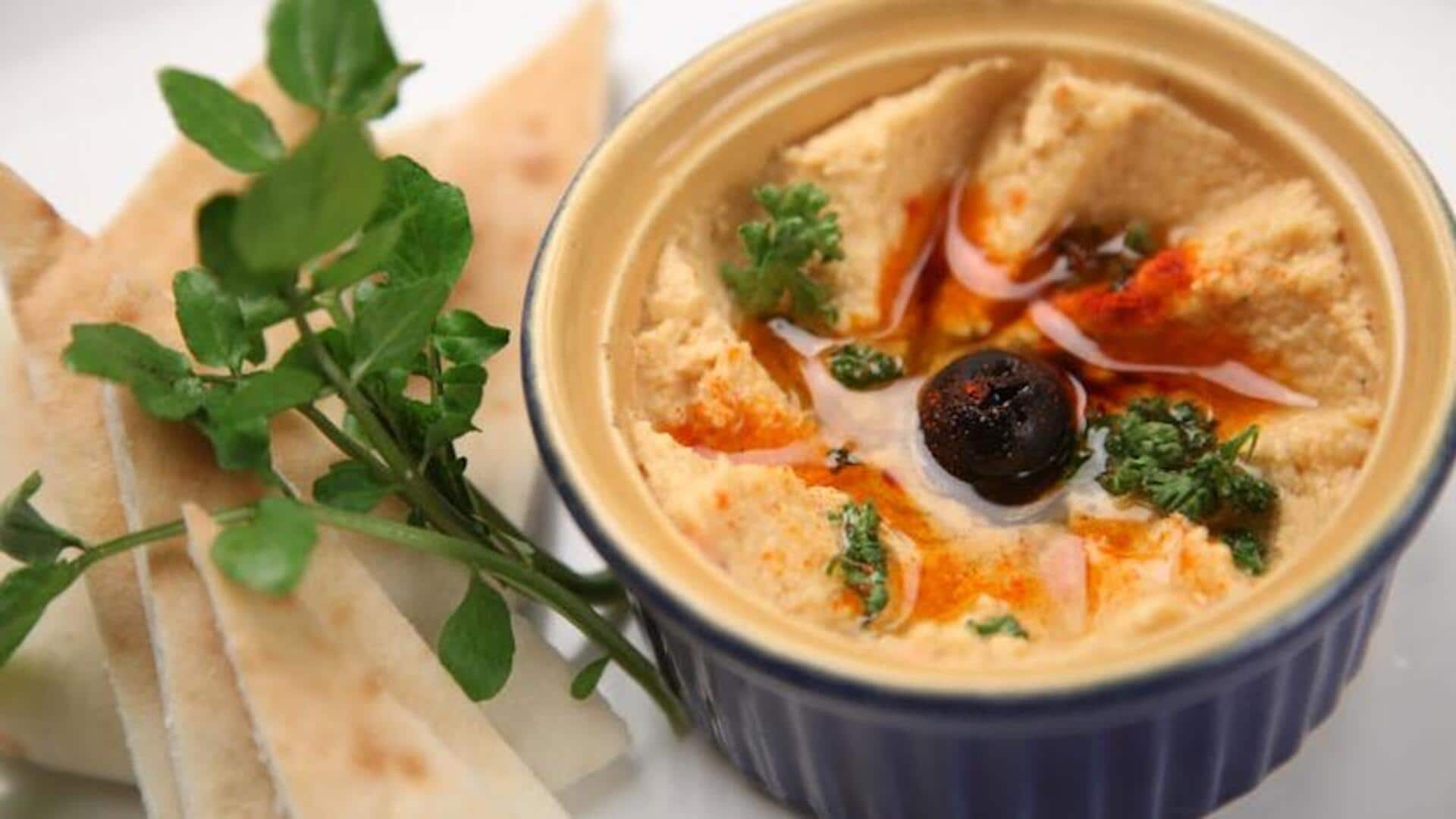
Navigating through the chronicles of hummus
What's the story
Hummus, the creamy dip that has conquered taste buds around the world, holds a special place in the culinary history of the Middle East. It has a rich history that spans centuries.
Crafted from cooked, mashed chickpeas combined with tahini, lemon juice, and garlic, this simple yet delicious dish has evolved over time.
Today, it is not just loved for its taste, it's a healthy option too.
Origins
The ancient roots of hummus
The first documented mention of hummus can be traced back to 13th century Egypt.
However, its true origins remain a mystery, with some food historians speculating that the recipe may have been known to the ancient cultures of the Middle East even earlier.
Regardless of its murky past, hummus has undoubtedly been a cornerstone of Middle Eastern cuisine for hundreds of years.
Expansion
Hummus goes global
By the late 20th century, hummus started to gain widespread recognition beyond the confines of the Middle East.
This was facilitated by the advent of global travel and migration, which served as a melting pot for culinary traditions, fostering a sense of interconnectedness across different cultures.
Fast forward to the early 21st century, hummus had successfully infiltrated supermarkets and restaurants worldwide, particularly in North America and Europe.
Adaptation
The versatility of hummus
The secret to hummus's global popularity lies in its adaptability.
While traditionally enjoyed as a dip or spread with bread in Middle Eastern cuisine, it has been embraced and reinvented by different cultures worldwide.
Nowadays, you can find it in a plethora of flavors ranging from roasted red pepper and avocado lime to even chocolate-infused versions for the sweet-toothed adventurers.
Health benefits
Nutritional profile of hummus
Hummus is not just a tasty option but also a super healthy one.
It is high in protein and fiber, and low in fat, which makes it a great choice for vegetarians and health-conscious individuals alike.
Plus, hummus is packed with essential vitamins and minerals like vitamin B6 and magnesium, further solidifying its place as a nutritious food.
DIY tips
Making your own hummus at home
Who says you can't make delicious hummus at home? It's super easy.
Take those chickpeas, throw in some tahini, squeeze in lemon juice, and add garlic. Blend it all up until it's smooth as silk.
Sprinkle in some salt and drizzle that olive oil. Want more flavor? Add cumin or pine nuts.